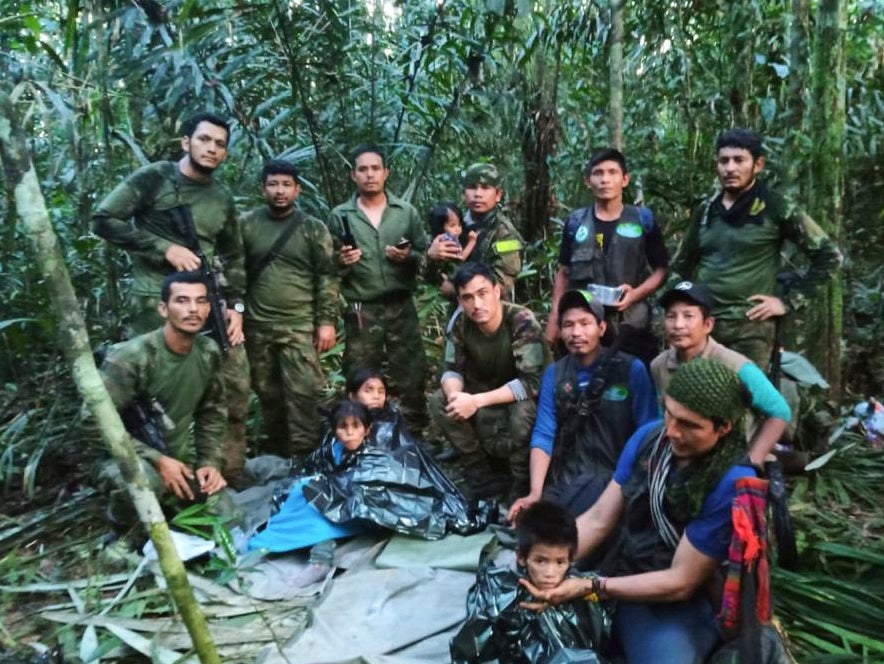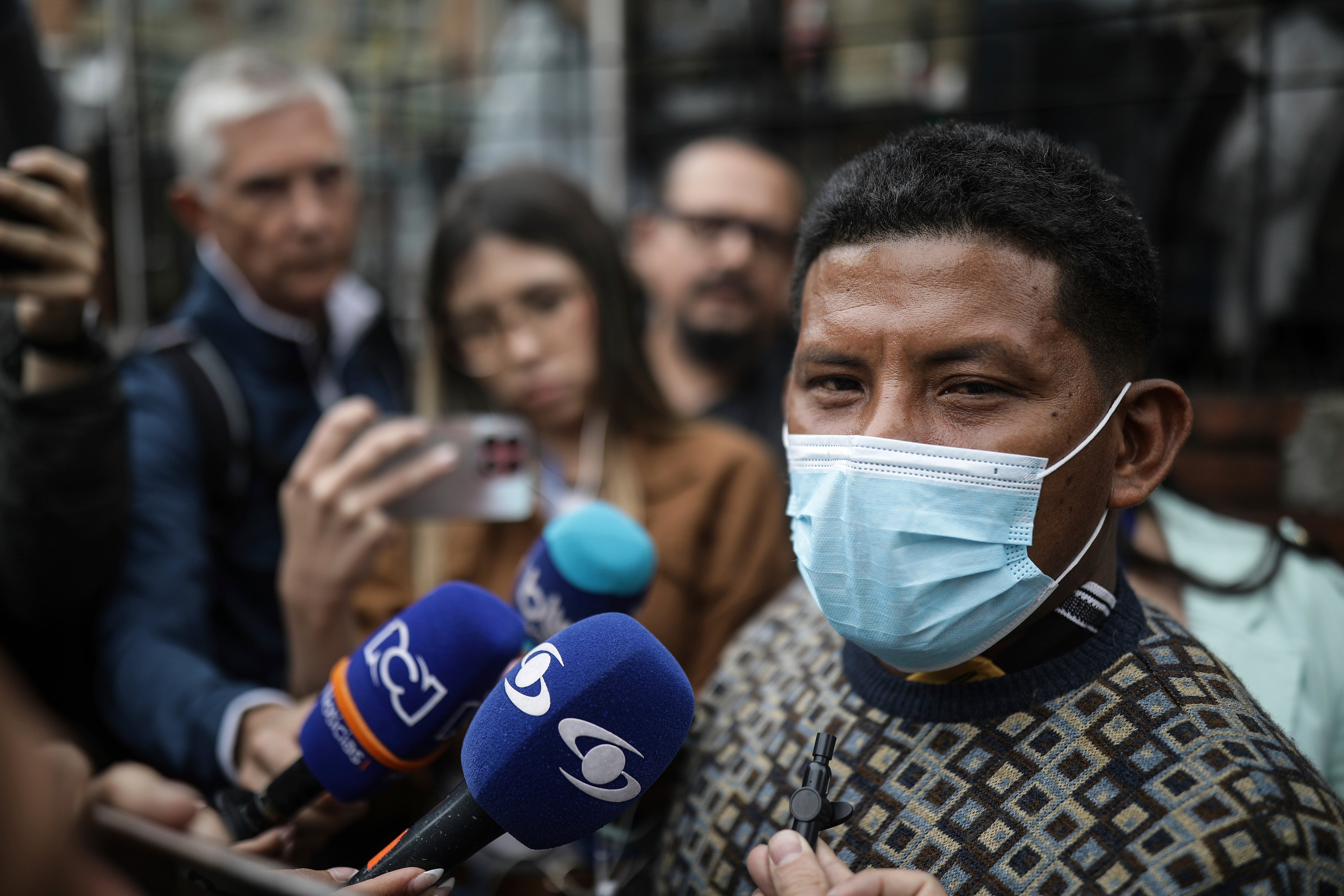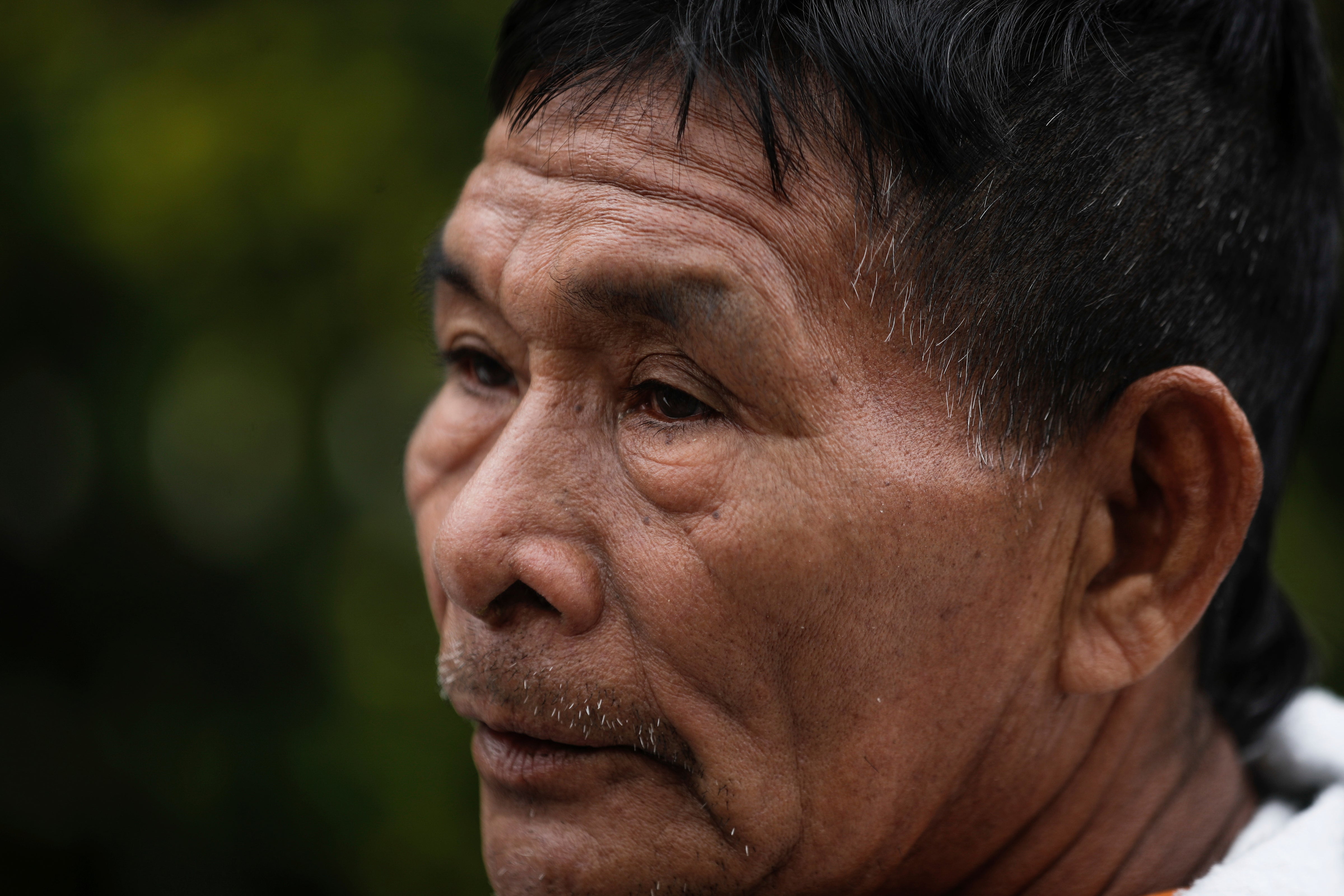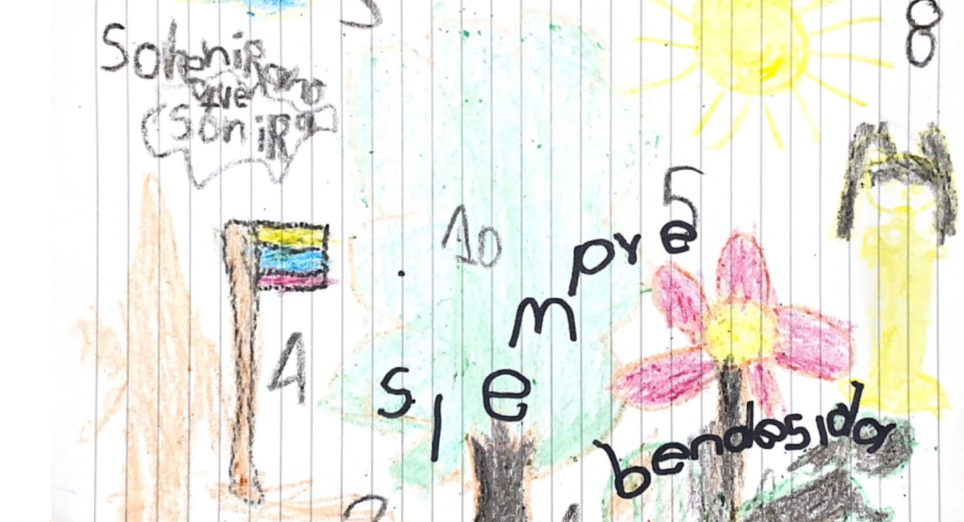
The flight to the Colombian capital of Bogotá on 1 May was always meant to be life-changing for Magdalena Mucutuy and her four children. They were leaving behind their life in their Indigenous reserve near the Amazon Rainforest, and everything that was familiar to them.
It was meant to be a fresh start, a new beginning — an opportunity to join Mucutuy’s husband and the father of her two youngest children, Manuel Ranoque, who had fled the reserve allegedly prompted by threats from guerrilla members. Mucutuy and the children — Lesly, 13, Soleiny, nine, Tien Norien, four, and one-year-old Cristin — were following behind, but a tragic crash ended her life and left her kids stranded in the forest.
Like many Indigenous kids, a profound sense of respect for the jungle and an appreciation for both its captivating beauty as well as its hidden dangers was instilled in the Mucutuy children from a young age. They relied on those instincts to survive a nearly-impossible odyssey that made headlines across the world. For forty days, the jungle became their maze but also their protector, their only resort as hundreds of Army officials combed through dense foliage with unwavering hope.
On 9 June, news of their rescue brought relief to millions following the case. But with the prospect of a long physical and emotional recovery ahead and amid allegations of abuse against Mucutuy’s husband, a legal battle for the children’s custody has ensued, marking the continuation of what promises to become the hardest chapter in their lives.
“The jungle saved them,” Colombian President Gustavo Petro said last week. “They are children of the jungle, and now they are also children of Colombia.”
Surviving a plane crash and 40 days in the jungle
The children were travelling with their mother from the Amazonian village of Araracuara to the town of San Jose del Guaviare on 1 May when the pilot of the Cessna single-engine propeller plane declared an emergency due to engine failure.
Their mother, the plane’s pilot, and another passenger died in the accident, but the children were nowhere to be found.

Days into the initial search Mr Petro announced that the minors had been located and were in good health. But hours later, he walked back that assertion, clarifying that the Air Force and indigenous communities had established contact with the children, but that their location remained unknown.
For more than a month, the children survived by eating cassava flour and seeds as well as some fruits they found in the rainforest, which they were familiar with as members of the Huitoto Indigenous group.
Soldiers in helicopters dropped boxes of food into the jungle, and planes fired off flares at night to illuminate the ground for crews searching around the clock. Rescuers also used speakers to blast a message recorded by the children’s grandmother telling them to stay in one place.

The children were finally found on 9 June and transported by helicopter to Bogotá and then to a military hospital. They are receiving traditional psychological treatment but officials have also sought to offer support in a culturally sensitive way, arranging for spiritual ceremonies.
As they continue their recovery, the children have told relatives harrowing details of their time in the jungle.
Allegations of abuse and custody battle
Astrid Cáceres, head of the Colombian Institute of Family Welfare, said in an interview with BLU radio that a caseworker was assigned to the children at the request of their maternal grandparents, who are fighting for custody against Mr Ranoque.
The children’s grandfather, Narciso Mucutuy, has accused Mr Ranoque of beating his daughter. He said that the children would sometimes hide in the forest to escape from the alleged beatings when Mr Ranoque was drunk.
“Once, he hit my daughter with a machete,” Mr Mucutuy told reporters, according to the Associated Press. “Another time, Lesly hid in the forest with her siblings for three days to protect them from the beatings when [Mr Ranoque] arrived home with alcohol breath and started hitting them without mercy.”


Mr Ranoque acknowledged to reporters that there had been trouble at home, but he characterised it as a private family matter and not “gossip for the world.”
Asked whether he had attacked his wife, Mr Ranoque said: “Verbally, sometimes, yes. Physically, very little. We had more verbal fights ... Sometimes when you’re drunk, you gotta understand, there are moments that you can lose your temper.”
Mr Mucutuy also accused Mr Ranoque of allegedly trying to assault one of his stepdaughters in an interview with Semana, which Mr Ranoque denied.
Mr Ranoque previously said that he had left their Indigenous community following threats by a chapter of the guerilla group FARC.
The widowed husband first said the oldest child told him Magdalena survived four days after the crash, but the grandparents denied those claims, noting Mr Ranoque has not been allowed to visit Lesly and Soleiny.
A complex journey ahead
After the children were found, army radios could be heard saying: “Miracle, miracle, miracle, miracle.”
Defence minister Ivan Velasquez has since paid tribute to the various army units’ “unshakeable and tireless” work, as well as to the Indigenous people who took part in the search. But ahead lies a complicated journey as the children reel from the loss of their mother and grapple with the psychological aftermath of their survival.
“We are going to talk, investigate, learn a little about the situation,” Ms Cáceres told BLU radio, adding that the agency has not ruled out that they and their mother may have experienced domestic abuse. “The most important thing at this moment is the children’s health. Not only their physical but also emotional.”

The children’s grandparents have asked the Colombian government for housing assistance so they can settle in Bogotá. They are planning to fight for the children’s custody and raise them in the capital.
“Once they recovered, we’ll fight to gain custody,” Mr Mucutuy told Semana in Spanish. “We want our grandchildren to go to school and have a better life.”
“I’ll care for them as a father and their granny will care for them as a mother. That’s our hope.”







